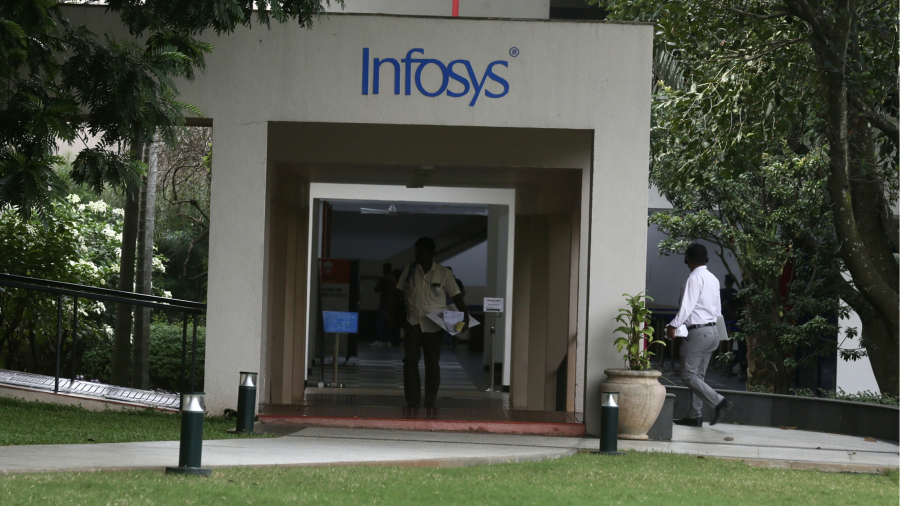
You could credit Rishi Sunak with playing the long game — were it not that his last attempt to become UK premier only ended seven weeks ago. This time, Tory MPs have propelled him to power over the heads of party members who last time disapproved of his elite credentials. These include a £630mn stake in Infosys held by his wife Akshata Murthy.
Sunak supporters resist the unflattering claim that family wealth will bias him against Britons on modest incomes. What they cannot deny is that his political fortunes and the value of Murthy’s investment are playthings of the dollar.
The greenback is up 10 per cent against the rupee in the past year. That helps Infosys. The group, co-founded by Murthy’s father, provides tech staff to companies around the world. Nearly two-third of its revenues come from North America.
Sunak spent the pandemic as UK chancellor, staving off the threat of widespread business collapses with generous loan schemes. Indian outsourcers like Infosys meanwhile enjoyed heavy demand from foreign businesses forced to accelerate online transitions.
Infosys shares are a quarter below their January peak. Global IT spend forecasts are slowing. Last September, chief information officers expected tech investment to rise over 5 per cent in 2022. Their growth forecast for next year falls below 2 per cent, according to Citi.
But the stock is still three times higher than in early 2020. The pandemic has strengthened a bullish thesis of Indian outsourcers as the ground troops of the tech revolution. Previously, they were seen as boring contract labour suppliers.
The re-rating leaves Infosys trading at around 24 times forward earnings, according to S&P data, a third above its pre-pandemic average.
Infosys has far more cash than debt. Sunak’s government will have far more debt than cash. The strong dollar, up a fifth against sterling this year, raises borrowing costs and pressure for spending cuts.
Automation may improve productivity, but that would mainly help the better off, regardless of Sunak’s commitment to “levelling up”. The software would mostly come from the US, the hardware from east Asia and the contract staff from India and eastern Europe.
The Lex team is interested in hearing more from readers. Please give us your analysis of Sunak’s task in the comments section below.